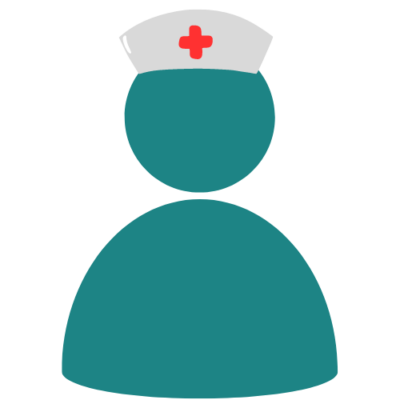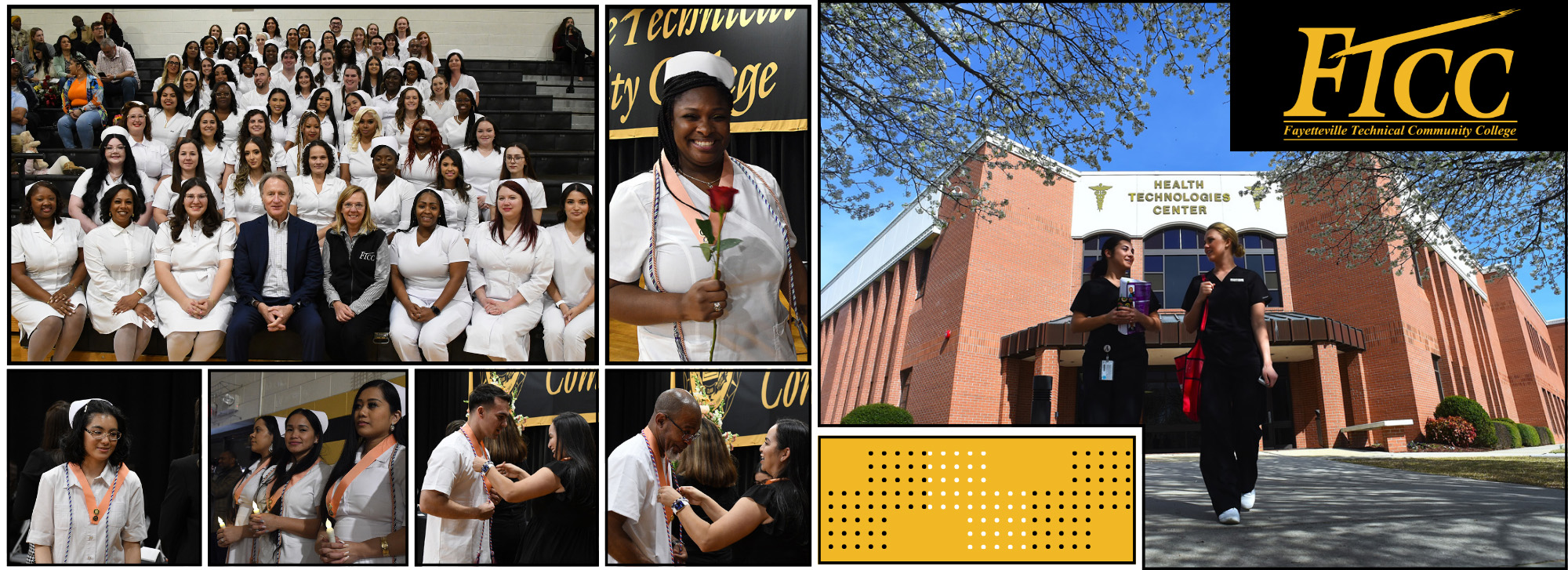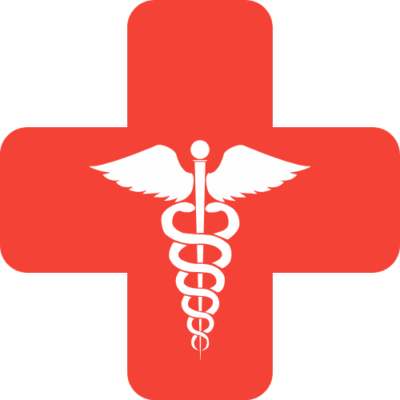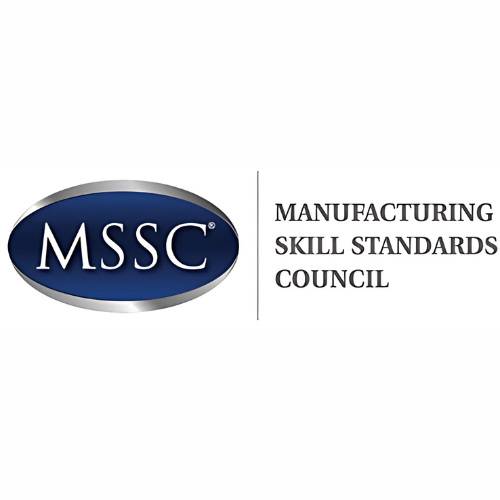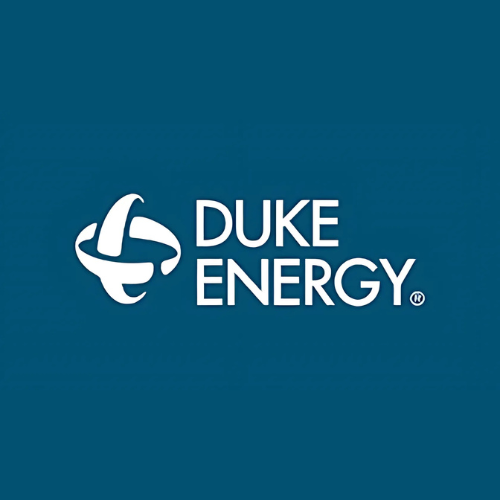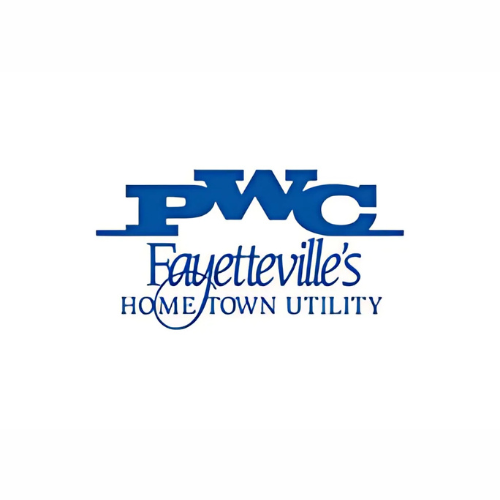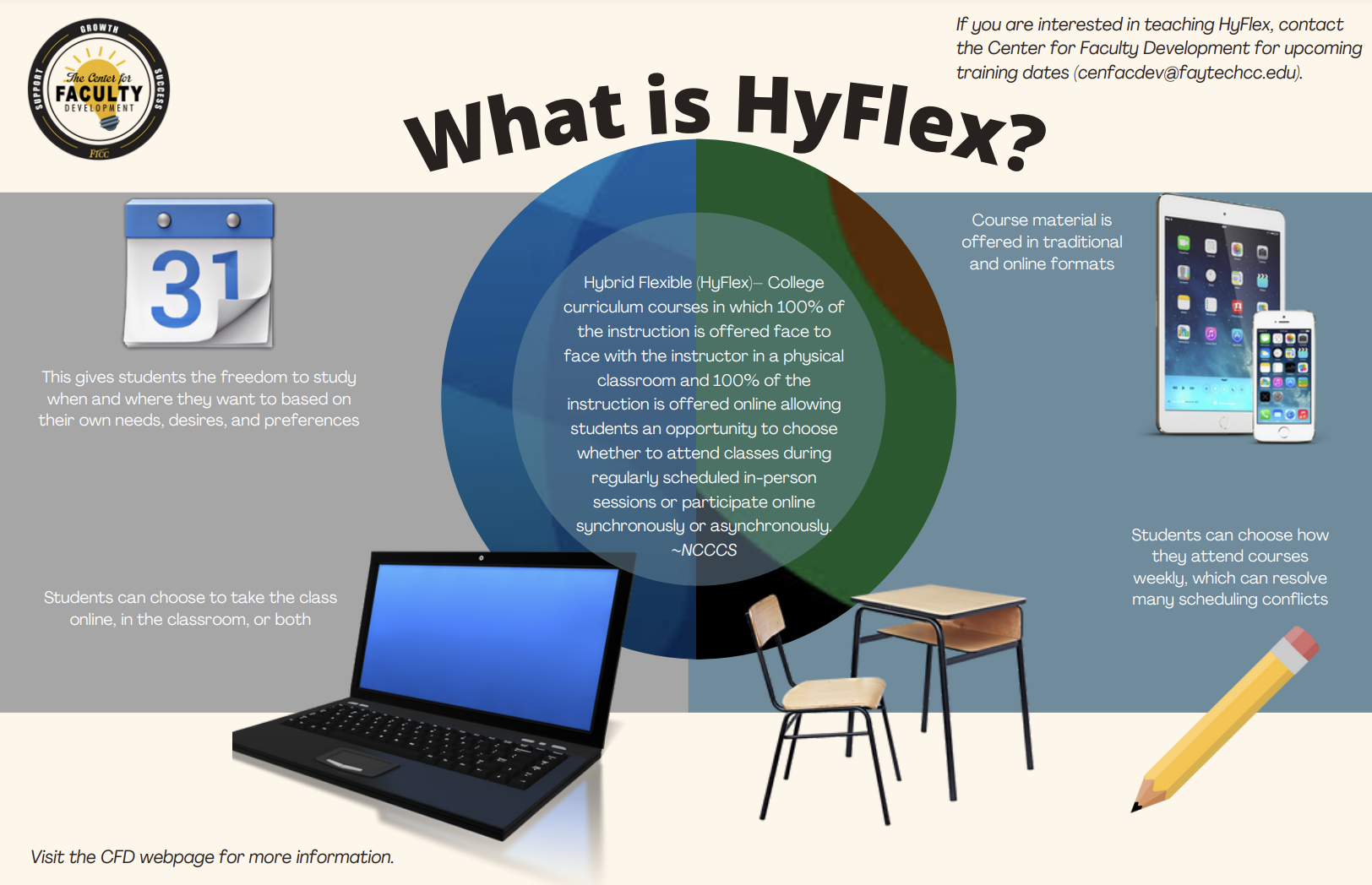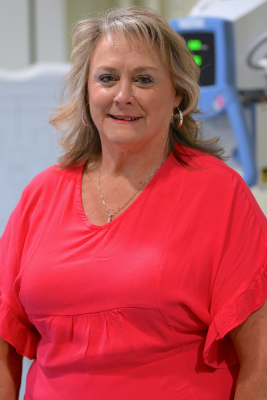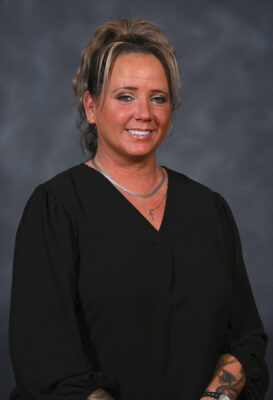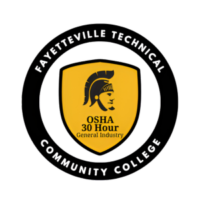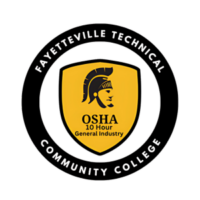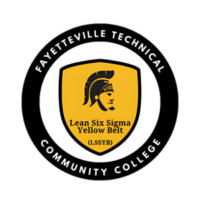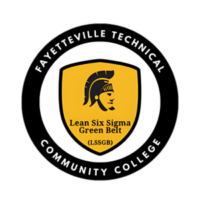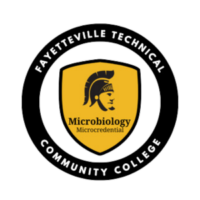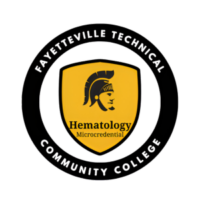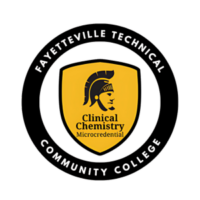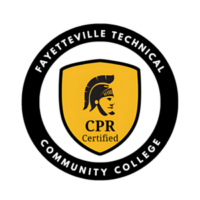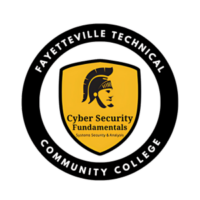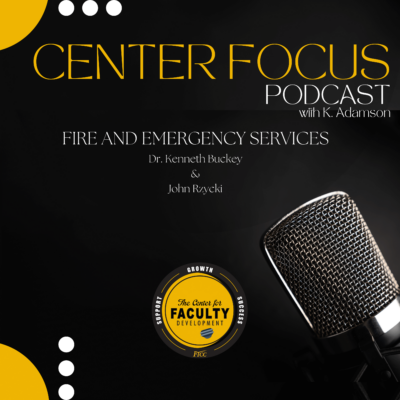Accreditation
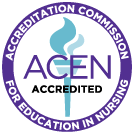
3390 Peachtree Road NE, Suite 1400
Atlanta, GA 30326
Phone: 404-975-5000
The associate degree nursing program at Fayetteville Technical Community College at the Fayetteville campus is accredited by the: Accreditation Commission for Education in Nursing (ACEN).
3390 Peachtree Road NE, Suite 1400 Atlanta, GA, 30326
The most recent accreditation decision made by the ACEN Board of Commissioners for the associate degree nursing program is continuing accreditation. View the public information disclosed by the ACEN regarding this program on the ACEN website.
ACEN accreditation serves as a mark of excellence for nursing programs, offering benefits such as quality assurance, recognition, improved student outcomes, transferability, access to funding, a culture of continuous improvement, and opportunities for professional development.
Quality Assurance: ACEN accreditation ensures that our nursing program meets or exceeds established standards for quality in nursing education. This signifies that the program has undergone rigorous evaluation and meets the criteria set forth by ACEN.
Recognition and Credibility: This accreditation demonstrates to students, employers, and other stakeholders that the program meets high standards of educational excellence within the healthcare community.
Enhanced Student Outcomes: ACEN accreditation encourages continuous improvements in nursing education, leading to enhance student outcomes. Accredited programs have a robust curricula, qualified faculty, and effective teaching methodologies, ultimately resulting in better-prepared graduates.
Transferability and Licensure: Graduates of ACEN-accredited nursing programs find it easier to transfer credits to other institutions or pursue licensure in various states. Many licensing boards and employers prefer candidates who have graduated from accredited programs.
Continuous Improvement Culture: The accreditation process encourages ongoing self-assessment, evaluation, and improvement within the nursing program. Institutions must demonstrate a commitment to quality improvement and adhere to standards that promote excellence in nursing education.
About the Program
The Associate Degree in Nursing (ADN) program offers a comprehensive curriculum designed to prepare students for entry-level nursing practice. This two-year (5 semester) program combines classroom instruction, laboratory experiences, simulation, and clinical rotations to equip students with the knowledge, skills, and clinical judgment necessary to provide safe and effective patient care.
Throughout the program, students study fundamental principles of nursing, including anatomy and physiology, pharmacology, medical-surgical nursing, maternal-child health, mental health nursing, and community health nursing. Emphasis is placed on evidence-based practice, critical thinking, communication, and cultural competence.
Coursework covers a wide range of subjects essential for nursing practice. The program is a concept-based curriculum. Concept-based learning emphasizes the understanding of key nursing concepts and their application in various contexts. Concepts such as patient-centered care, safety, evidence-based practice, and cultural competence are woven throughout the curriculum. Students explore nursing fundamentals, including patient assessment, medication administration, and basic nursing skills. Courses in medical-surgical equip the student with knowledge and skills to care for patients with various medical conditions across the lifespan. Maternal-Child health focuses on prenatal care, labor and delivery, and newborn care. Mental health addresses the assessment and management of mental health disorders and therapeutic communication techniques. Community health nursing emphasizes health promotion, disease prevention, and care within diverse community settings.
ADN Program Completion Rates
| Semester/Year |
Number of students started in NUR 111 |
Number of the Same Students who Completed Program at 100%-time frame |
100% Time-frame Completion Rate |
Number of the Same Students who Completed Program within 150%-time frame |
150% Time-frame Completion Rate |
| Fall 2025 |
89 |
TBD (Spring 2027) |
TBD |
TBD (Spring 2028) |
TBD |
| Spring 2025 |
89 |
TBD (Fall 2026) |
TBD |
TBD (Fall 2027) |
TBD |
| Fall 2024 |
69 |
TBD (Spring 2026) |
TBD |
TBD (Spring 2027) |
TBD |
| Spring 2024 |
69 |
59 (Fall 2025) |
85.51% |
TBD (Fall 2026) |
TBD |
| Fall 2023 |
71 |
55 (Spring 2025) |
77.46% |
TBD (Spring 2026) |
TBD |
| Spring 2023 |
65 |
54 (Fall 2024) |
83.08% |
58 (Fall 2025) |
89.23% |
| Fall 2022 |
69 |
54 (Spring 2024) |
78.3% |
63 (Spring 2025) |
91.3% |
| Spring 2022 |
70 |
43 (Fall 2023) |
61.4% |
60 (Fall 2024) |
85.7% |
| Fall 2021 |
76 |
61 (Spring 2023) |
80.3% |
70 (Spring 2024) |
92.1% |
RN Licensure First-Time Pass Rates
| Year |
Q1 |
Q2 |
Q3 |
Q4 |
Annual |
| 2025 |
82.76% |
89.47% |
100% |
Coming soon! |
86.32% |
| 2024 |
98.11% |
96.55% |
100% |
100% |
97.48% |
| 2023 |
87.5% |
92.31% |
100% |
85.71% |
90.72% |
| 2022 |
67.74% |
81.82% |
50% |
89.66% |
78.35% |
Admissions
The Associate Degree in Nursing program accepts students into the program twice a year in Spring and Fall. The application cycles are:
November 1 to January 30 for a Fall start
June 1 to July 31 for a Spring start
For more information on how to apply please visit our Nursing Advising and Admissions Center.
Competitive Selection Process:
Competitive admissions for the nursing program entail a selection process aimed at identifying candidates who demonstrate the highest potential for success in the program and as future healthcare professionals. With limited seats available and a high demand for nursing education, competitive admission fosters a cohort of students who are prepared to excel academically, contribute to the learning environment, and positively impact patient care upon graduation.
FTCC takes a holistic approach on how students can earn competitive points towards admissions into the nursing program. Students have the opportunity to earn points from related co-requisite courses, the ATI TEAS entrance exam, relevant health-care related work experience, admission essays, and more.
Students are encouraged to visit our Nursing Advising and Admissions Center for guidance on the competitive admissions process.
Estimated Program Costs
ASSOCIATE DEGREE NURSING (ADN) ESTIMATED PROGRAM COSTS
| ITEM |
COST |
| Prior to Enrollment (Physical) |
$150 – $300 |
| Immunizations¹ |
$15 – $450 / total $898 |
| Tuition & Fees⁴ |
$5,833 in-state |
| Elsevier/HESI Installment Payment 1 (1st Semester) $646.33 |
$646.33 |
| Elsevier/HESI Installment Payment 2–5 (2nd through 5th Semester) $377.15 each semester |
$1,508.60 |
| Liability Insurance ($14.00/year) |
$28.00 |
| Criminal Background Check & Drug Screening |
$84.00 |
| CPR Certification² (American Heart Association – BLS) |
$70.00 |
| Clinical Agency Repository |
No cost to students |
| Student Uniforms³ |
$150 – $400 |
| Lab Supply Kit |
$203.00 |
| Shoes |
$50 – $150 |
| Watch |
$15 – $35 |
| Pinning Ceremony Attire |
$30 – $225 |
| Graduation Fee |
No cost to students |
| Nursing Licensure Exam⁶ |
$200.00 |
| Board of Nursing Licensure Application ($75.00) and Background Check ($38.00) |
$113.00 |
| County Sheriff’s Office – Fingerprints |
$13 – $20 |
| Estimated Total (subject to change) |
$10,713.93 |
| Optional Items |
| Optional Graduation Pin |
$26 – $50 |
Optional National Student Nurses Association Membership
($40.00 1st year / $45.00 2nd year, or $80.00 for two years paid in full) |
$80.00 |
1 Prices based on DHHS costs with no insurance. Must have started Hepatitis vaccine series before entering the program
2 CPR Certification Required (American Heart Association Only)
3 Prices vary based on brand or style chosen by student
4 Cost includes nursing and co-requisite classes / Out-of-State tuition $18,280.00
5 Cost estimate is for NUR course books and associated e-resources only. Extra expenses may be incurred for co-requisite class books
6 Students using VA benefits may be eligible for reimbursement through the VA
Additional Information:
The Associate Degree Nursing program is 5 semesters and has 2 available program entry dates,
one during the fall semester and one during the spring semester.
- Fall entry applications accepted November 1 – January 30
- Spring entry applications accepted June 1 – July 31
Revised November 2025
Scholarship Opportunities
NC CFNC Forgivable Education Loans for Service (FELS):
FELS provides financial assistance to qualified students enrolled in an approved education program committed to working in critical employment shortage professions in North Carolina. FELS loan recipients must sign a promissory note that will require them to seek loan forgiveness through employment in an approved position.
Cape Fear Valley Scholarships:
Scholarship opportunities available to ADN Nursing Students who sign employment commitments with Cape Fear Valley Health System.
AHEC Scholars Program:
Selected applicants participate in a two-year educational program and may receive a subsidy subject to academic approval. The program runs from September through May each year.
FTCC Foundation Scholarships:
Scholarship applications are generally open during the Spring semester (February – April). Scholarships are awarded for the following Fall (August) and Spring (January) semesters.
Progression Procedures
ADN Nursing Program Progression Procedure
The Nursing Program maintains progression procedures consistent with the North Carolina Board of Nursing (NCBON) rules and standards, including 21 NCAC 36 .0320, to ensure that students demonstrate the knowledge, skills, abilities, and professional behaviors required for safe, entry-level nursing practice. Progression through the program is sequential and based on successful completion of didactic, laboratory, simulation, and clinical course outcomes.
To progress in the Nursing Program, students must successfully complete each nursing course with a minimum grade of B. Only grades of A or B constitute successful completion and count toward progression in the nursing program. A grade below the required minimum in any nursing course constitutes unsuccessful course completion and may result in dismissal or eligibility for course repetition, in accordance with program procedure and NCBON requirements. Students must also maintain the required health grade point average of 2.5, and institutional cumulative grade point average of 2.0 throughout enrollment.
In accordance with 21 NCAC 36 .0320, students may be denied progression or dismissed from the Nursing Program if they:
- Present physical or mental health problems that conflict with the safety essential to nursing practice or do not respond to treatment or counseling within a timeframe that enables the student to meet program objectives;
- Demonstrate behavior that conflicts with the safety essential to nursing practice; or
- Fail to demonstrate professional behavior, including honesty, integrity, and appropriate use of social media, while enrolled in the nursing program.
Students must demonstrate satisfactory clinical and simulation performance in all required learning experiences. Clinical evaluations are based on achievement of course competencies, application of the nursing process, clinical judgment, adherence to safety standards, and professional conduct. Unsatisfactory clinical performance, regardless of didactic course grade, constitutes course failure and prevents progression in the program.
Students are expected to comply with the NCBON Nurse Practice Act, Nursing Program procedures, and clinical agency requirements, including standards related to professionalism, ethical conduct, attendance, health clearance, and background and drug screening requirements. Any behavior that is unsafe, unethical, or inconsistent with professional nursing standards may result in immediate removal from the clinical setting and affect progression or continuation in the program.
Progression decisions are made by Nursing Program faculty and administration in accordance with published procedures and NCBON rules. The Nursing Program reserves the right to restrict or deny progression to any student who fails to meet academic, clinical, health, or professional standards necessary to protect public safety and ensure program integrity.
RN Licensure (NCLEX Exam) & NC Board of Nursing
Fayetteville Technical Community College’s Nursing Program takes pride in equipping students with the knowledge and skills necessary to excel in their nursing careers. After completing the 5-semester program, students are eligible to take their Registered Nurse Licensure Exam with the North Carolina Board of Nursing.
Our high NCLEX pass rates reflect our robust nursing program and successful preparation strategies, ensuring our students pass the licensure exam with confidence. NC Board of Nursing Pass Rate Statistics
About the Next Generation NCLEX (NGN) Exam:
Designed to align with contemporary nursing practice, the NGN exam incorporates innovative item types and advanced technology to evaluate a candidate’s clinical judgment and critical thinking skills. Departing from traditional multiple-choice questions, the NGN exam integrates elements such as case studies, simulations, and interactive tasks to provide a more holistic assessment of a nurse’s ability to make complex decisions in dynamic healthcare environments. With an emphasis on real-world scenarios and application of knowledge, the NGN exam aims to better prepare nurses for the challenges they will face in delivering safe and effective patient care.
North Carolina Board of Nursing (NCBON):
NCBON is a regulatory agency responsible for overseeing the practice of nursing within the state. NCBON sets standards for nursing education, licensure, and practice. They regulate nursing practice to maintain high standards of care and enforce ethical guidelines and professional conduct among nurses.
Single State RN License:
A single state licensure in Registered Nursing (RN) refers to the authorization granted by a particular state’s nursing regulatory board that allows an individual to practice within the boundaries of that specific state.
Multistate (Compact) RN License:
Under the Nurse Licensure Compact (NLC), nurses who hold a license in a state that is part of the compact can practice in other participating states without having to obtain additional licenses. Compact RN license allows nurses to work across state lines more easily, facilitating mobility and flexibility in their careers. North Carolina is part of the NLC, and students who are residents of North Carolina may request a multistate license when applying to take their NCLEX.
Other State Licensing:
Students may be eligible to apply for nursing licenses from other states; however, they must first consult with the Dean of Nursing to ensure they meet the specific requirements set by the respective state’s Board of Nursing.
RN – BSN Transfer Program
North Carolina Community College Associate Degree Nursing Programs are approved by the State Board of Community Colleges and the UNC Board of Governors to participate in the Uniform Articulation Agreement between the University of North Carolina Registered Nurse (RN) to Bachelor of Science in Nursing (BSN) program.
A student who completes the Associate Degree in Nursing at Fayetteville Technical Community College with a GPA of 2.0 or higher, has a grade of C or better in their general education in nursing courses, and holds a current unrestricted license as a Registered Nurse in North Carolina, will have fulfilled the UNC institutions lower-division general education requirements as well as nursing program entry requirements.
Associate in General Education Nursing Program (A1030N)
All students who choose Nursing when completing their FTCC General Admissions Application (CFNC) are automatically enrolled in the Associate in General Education – Nursing program (A1030N). This allows students to take their general education in nursing courses while they compete for a seat in the Associate Degree Nursing program.
Students admitted to the Associate Degree Nursing program will remain dual enrolled in the AGE-Nursing program so they can continue to work towards completing their general education courses to transfer to a BSN program at a University of North Carolina school, if they choose to do so.
Simulation Experiences
In December 2022, FTCC opened its Nursing Education and Simulation Center. FTCC can provide an immersive and dynamic environment for nursing students to
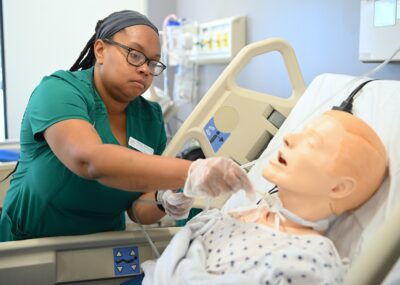
healthcare settings. Students engage in hands-on learning experiences, utilizing high-fidelity and low-fidelity patient simulators, and task trainers to practice clinical skills, critical thinking, and interprofessional communication. Through scenario-based simulations, learners encounter diverse patient populations and complex healthcare situations, preparing them to respond effectively in real-world practice. enhance their skills and knowledge in a safe, simulated setting. Equipped with state-of-the-art technology, the center replicates realistic clinical scenarios across various
Clinical Experiences
Students engage in hands-on clinical experiences to apply theoretical knowledge in real-world healthcare environments, honing their clinical skills and critical thinking
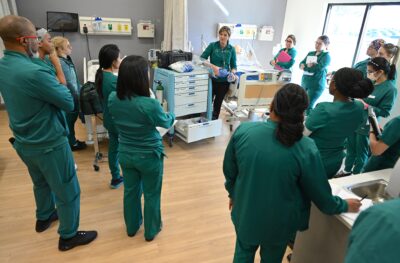
abilities. Students will receive a total of 816 clinical hours throughout the program.
FTCC Nursing partners with Cape Fear Valley Health Systems, UNC Southeastern, First Health, and other community partners to provide engaging and robust clinical experiences.
Student Organizations
Alpha Delta Nu Nursing Honor Society (Organization for Associate Degree Nursing)
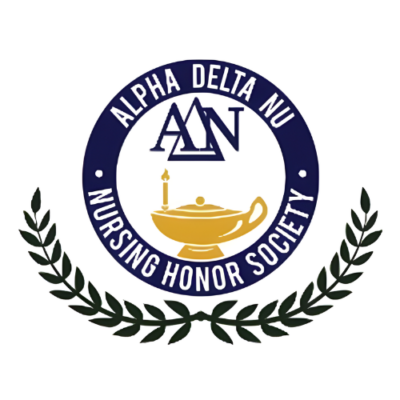
The mission of the Alpha Delta Nu Nursing Honor Society is centered around recognizing and celebrating academic excellence among students studying Associate Degree Nursing. The society aims to honor and acknowledge students who demonstrate exceptional dedication, knowledge, and skills in their nursing studies.
Beyond simply recognizing academic achievement, Alpha Delta Nu actively encourages its members to further their education and professional development in the field of nursing. This includes promoting the pursuit of advanced degrees, such as Bachelor of Science in Nursing (BSN) or Master of Science in Nursing (MSN), as well as engaging in continuing education opportunities throughout their careers.
Alpha Delta Nu views continuing education as a lifelong professional responsibility for nurses. By staying abreast of the latest advancements, best practices, and research in the field, members of the society can continuously enhance their skills and knowledge to provide the highest quality care to their patients.
Association of Nursing Students (ANS)
The Association of Nursing Students (ANS) is a dynamic chapter of the National Student Nurses’ Association (NSNA), dedicated to offering mentorship and support to nursing students as they progress through their academic and professional journeys. ANS is committed to creating a thriving community where nursing students can flourish, aided by the guidance of experienced faculty members.
Central to ANS’s mission is the promotion of collaboration among nursing students and faculty members. By fostering an environment of teamwork and mutual support, ANS aims to enhance students’ leadership abilities and communication skills. Through various initiatives such as workshops, educational events, and networking opportunities, the association provides a platform for students to develop both personally and professionally.

